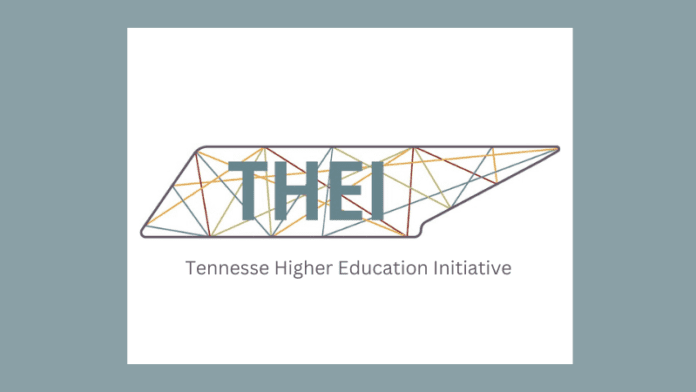Faculty in Belmont University’s Massey College of Business, College of Liberal Arts and Social Sciences and the College of Theology and Christian Ministry began participating in a pilot prison education program in partnership with the Tennessee Higher Education Prison Initiative (THEI) by providing coursework for currently incarcerated students at the Turney Center Industrial Complex in Only, TN.
THEI works to disrupt systems of harm and create opportunities for autonomy and success by providing college access to people inside Tennessee prisons, preparing students for skillful re-entry and reducing barriers to continued education and achievement.
Many colleges and universities offer certificates and credentials that enable incarcerated persons to enhance their skills, but few programs offer higher education degrees.
Belmont’s prison education program currently has twenty-three students enrolled at the Turney Center and working on completing a Professional Bachelor of Business Administration from Belmont in an online, asynchronous mode. These junior and senior level students all previously earned their associate degree in business administration through Nashville State Community College.
Dr. Jim McIntyre, Dean of the College of Education and Assistant Provost for Academic Excellence was recently appointed to help facilitate the program. “This is truly a mission-driven initiative,” he said. “As we think about being able to really transform lives, I can’t think of anything more powerful than this type of education and enlightenment. We have the ability to not only teach but also bring some extraordinary faculty members who have such a great perspective on life and faith and learning to interact with the students who are incarcerated. It’s literally life-changing.”
Ninety percent of currently incarcerated individuals will eventually be released. Education has proven to be an effective tool for decreasing recidivism and ensuring individuals have resources that set them up for success once they are released from prison, so they don’t return. THEI has facilitated associate and bachelor’s degrees for incarcerated students in Tennessee for over a decade. In that time, no graduate has ever been re-incarcerated.
“That’s an astonishing number,” Dr. Jayme Yeo, assistant professor in Belmont’s College of Liberal Arts and Social Sciences said. Yeo became involved with the program to make an impact on incarcerated students, “but I have discovered that it is my students who have changed me. They have taught me to believe that education can transform our world by showing me the deep grace of learning in community.”
The benefits of education programs at correctional facilities don’t stop at a significant reduction in recidivism rates. Reincarceration is expensive, and low recidivism saves the state money. According to THEI’s data, on average, the savings amount to $24,333 a year for each student. Moreover, prison education work aligns with Belmont’s strategic objective of helping reweave the social fabric and radically champion the pursuit of life abundant for all people.
“Incarceration perpetuates generational trauma by separating families,” Yeo said. “Degree-granting higher education programs offer hope by empowering incarcerated parents to model transformative change for their children. Prison higher education programs foster generational healing that gives families a lifeline out of the school-to-prison pipeline.”
A proposal was recently submitted that outlined potential next steps for the prison education program at Belmont requesting specific components including potentially identifying staff support, engaging stakeholders and examining resource needs.
“This is really good work that Belmont is doing at the Turney Center,” McIntyre said. “There is an interest in doing more. We are in a moment where we are proud of the work that is happening. We see a lot of success and effectiveness. We want to make sure that we continue that work and maintain that level of excellence.”



